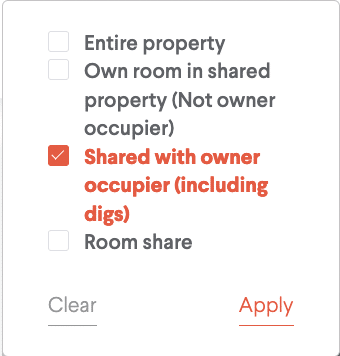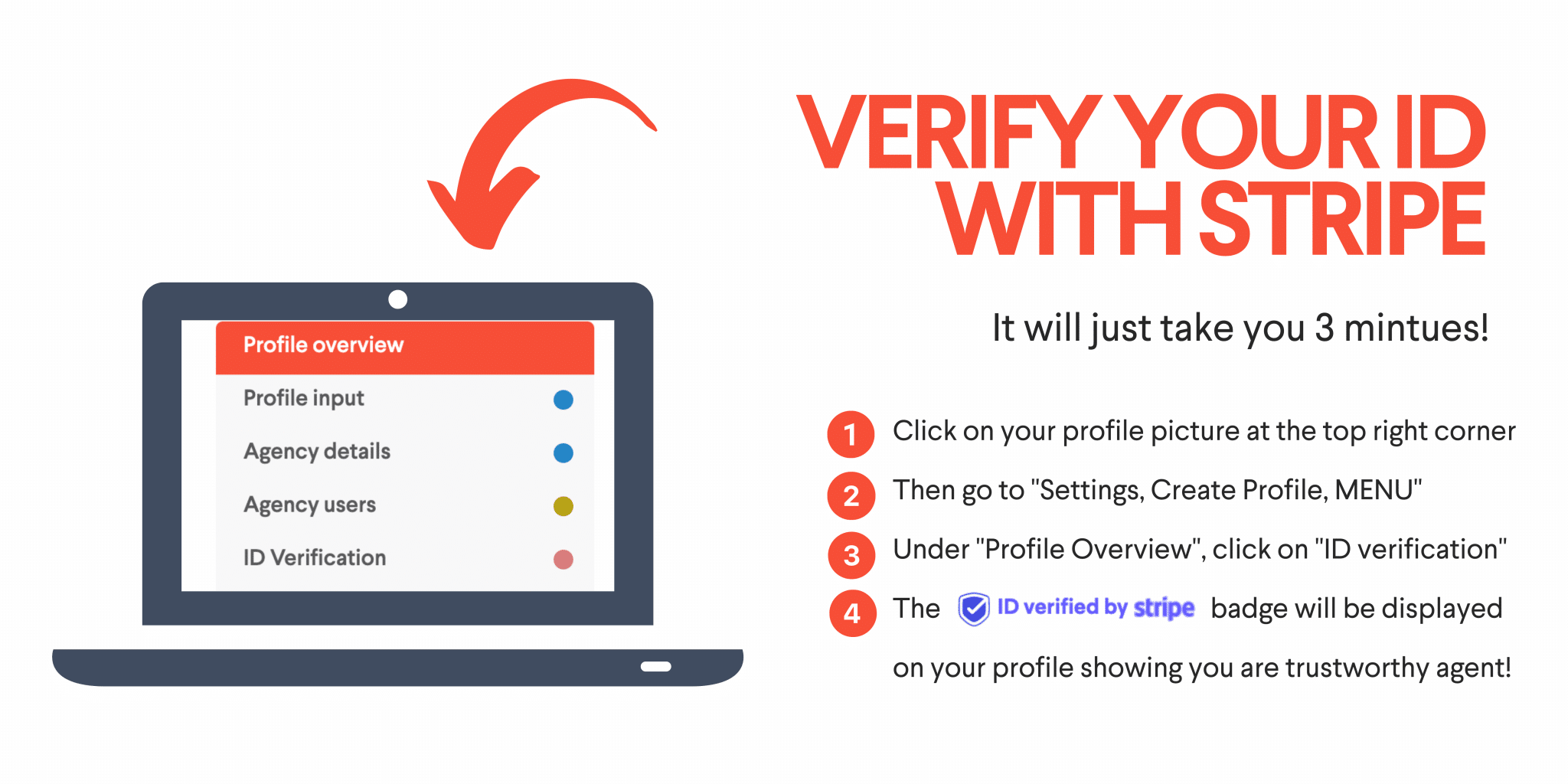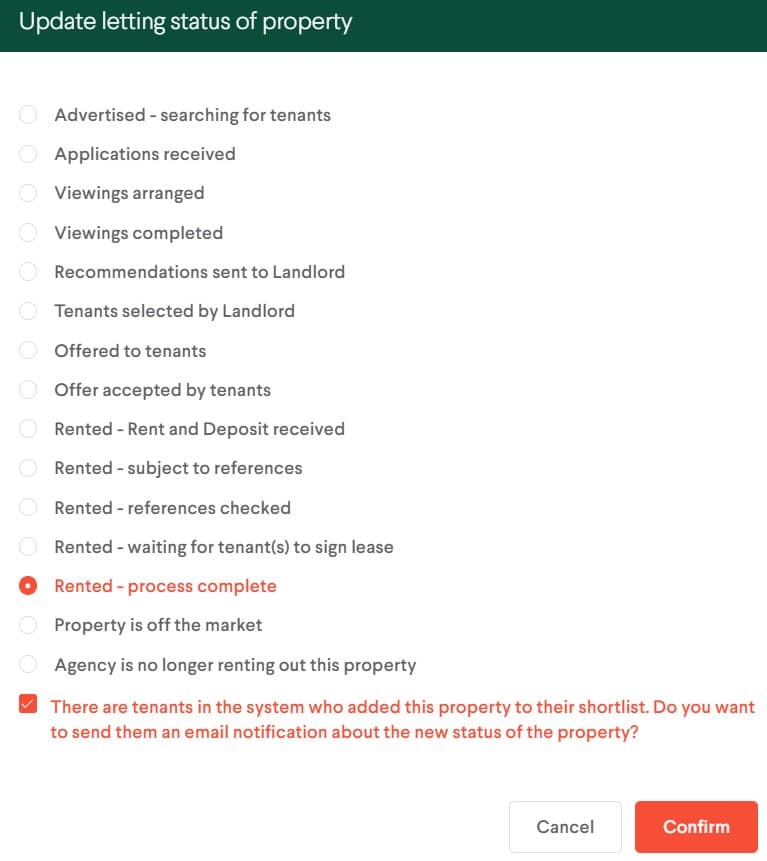If you are a landlord or letting agent who has rented out properties to tenants in the past, you know that providing references is a crucial part of the process. Thus, we have constructed some useful guidance on how to provide references to tenants effectively.
In this article, you will also learn the benefits of using HomeHak.com to secure and streamline the referral process. Whether you are a seasoned landlord or agency or just starting in the rental industry, this post will provide you with valuable insights.
Keep reading to learn how to provide references to tenants with confidence and ease.

1. Verify the details of the tenancy
Include details such as the tenant’s move-in and out date and whether or not that was in line with the initial agreement.
Also, state if agreements regarding rental payments were honoured. Inform them as to whether or not the tenant gave sufficient notice before leaving your property.
2. Be honest and accurate
Don’t sugarcoat or exaggerate the tenant’s strengths or downplay your tenant’s weaknesses. Provide an unbiased, truthful and balanced assessment of the tenant’s suitability for another rental property.
This will help the tenant find a property that’s a good fit for them and protect your reputation as a referee. In some cases, rather than providing a negative reference for a candidate, a landlord or agent may opt not to provide a reference at all.
3. Provide relevant information
Include information that’s helpful to the tenant and their future landlord or agency. For example: the tenant’s rental history, reliability, consistency and any other relevant information that could impact their ability to rent a property.
Providing too much irrelevant information can be overwhelming and unhelpful. Remember to stick to the facts! Only provide information that is relevant to the tenant’s rental application. Avoid including any personal opinions or assumptions.
4. Get permission from the tenant
If a third party (such as another landlord or agency) approaches you for a reference, remember to contact your tenant before providing it. This will help protect the tenant’s privacy and ensure that their information is only shared with parties that they have authorised.
Explain to the tenant what information you will include in the reference. In addition, your tenants should be informed of who you will share the reference with. Never disclose any unnecessary confidential information in any form about the tenant or their family.

5. Provide up-to-date contact information
You will be helping the tenant’s future landlord or agent to verify the information provided. They should be able to contact you if they have a question about the reference or the tenant.
6. Do not discriminate
This means that you should not base your reference on factors such as:
- Gender
- Marital status
- Family status
- Age
- Disability
- Sexual orientation
- Race
- Religion
- Membership of the Traveller community.
Instead, focus on the tenant’s relevant qualifications, attributes and suitability as a tenant.
For more information, have a look at Ireland’s Equal Status Acts 2000-2018.
7. Don’t retaliate against a tenant for exercising legal rights
This behaviour will likely reflect badly on you as the referee. Besides, it may perpetuate a culture of illicit activity in the rental property market.
8. Keep records of the references you provide
Make sure to keep copies of the reference form and any other relevant documents. For example: emails or phone call notes. This is crucial as they may be requested from you at a later date.
For accuracy and security, add your signature and the date to your written references. Send the document in a scanned .pdf format to avoid the document being formatted or changed without your knowledge.
9. Provide timely references
Respond promptly to reference requests and provide the reference within a reasonable time frame. This can help the tenant secure a property quickly.
10. Avoid using colloquial language
Remember that tenants who request a reference may not need it for the same city or country where they have rented a home or room from you. Therefore, you should avoid a casual communication style so the document travels well across different regions and cultures.
Keep the language straightforward. Otherwise, if a non-English speaker feeds your text into a translator, they could struggle to understand the context and your sentiment.

How to use HomeHak to provide references:
Considering everything, the process of providing references can be time-consuming and challenging. This is especially important when dealing with a large number of tenants.
HomeHak.com has made it easier for landlords and agencies to provide reliable references to past tenants seeking new homes. Tenants can simply fill in this form to request a reference from their previous landlord or letting agent.
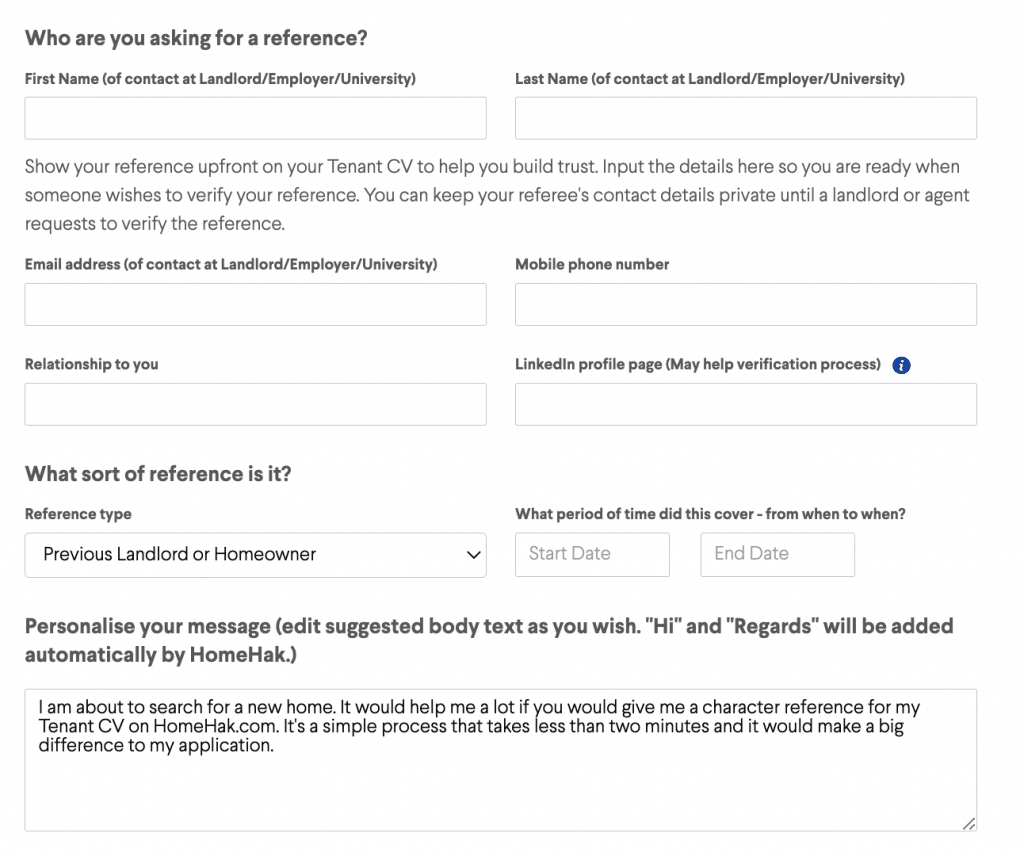
The landlord or letting agent will receive a request by email. As you can see in the below image, the request comes with a template you can edit and use:
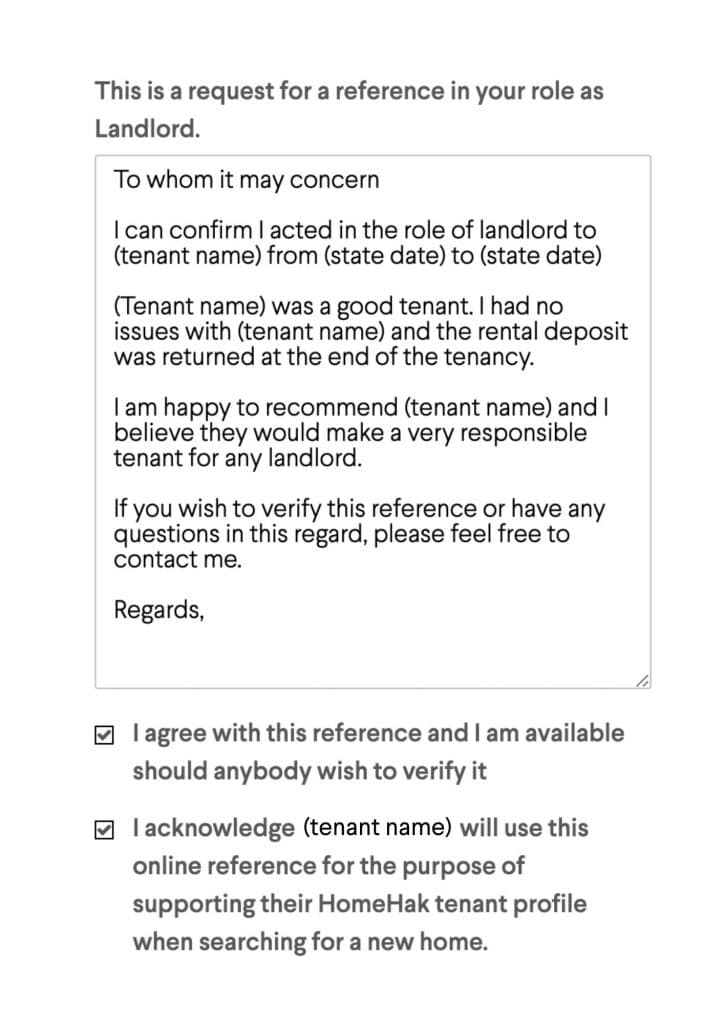
HomeHak allows landlords and letting agents to:
- Provide ID-verified references to tenants with ease
- Quickly and accurately provide trustworthy and credible references
- Edit or withdraw your reference from your HomeHak account in case you change your mind
- Delete your contact details (from that date, your reference will be attributed to “unregistered member”)
In addition, you can use the HomeHak Tenant Selector to filter and communicate with potential tenants. This will allow you to find new tenants for any properties or rooms that have become available since your tenant recently moved out.
Would you like to learn more about how HomeHak can help you select trustworthy tenants? Visit HomeHak for Landlords or HomeHak for Letting Agents.
















